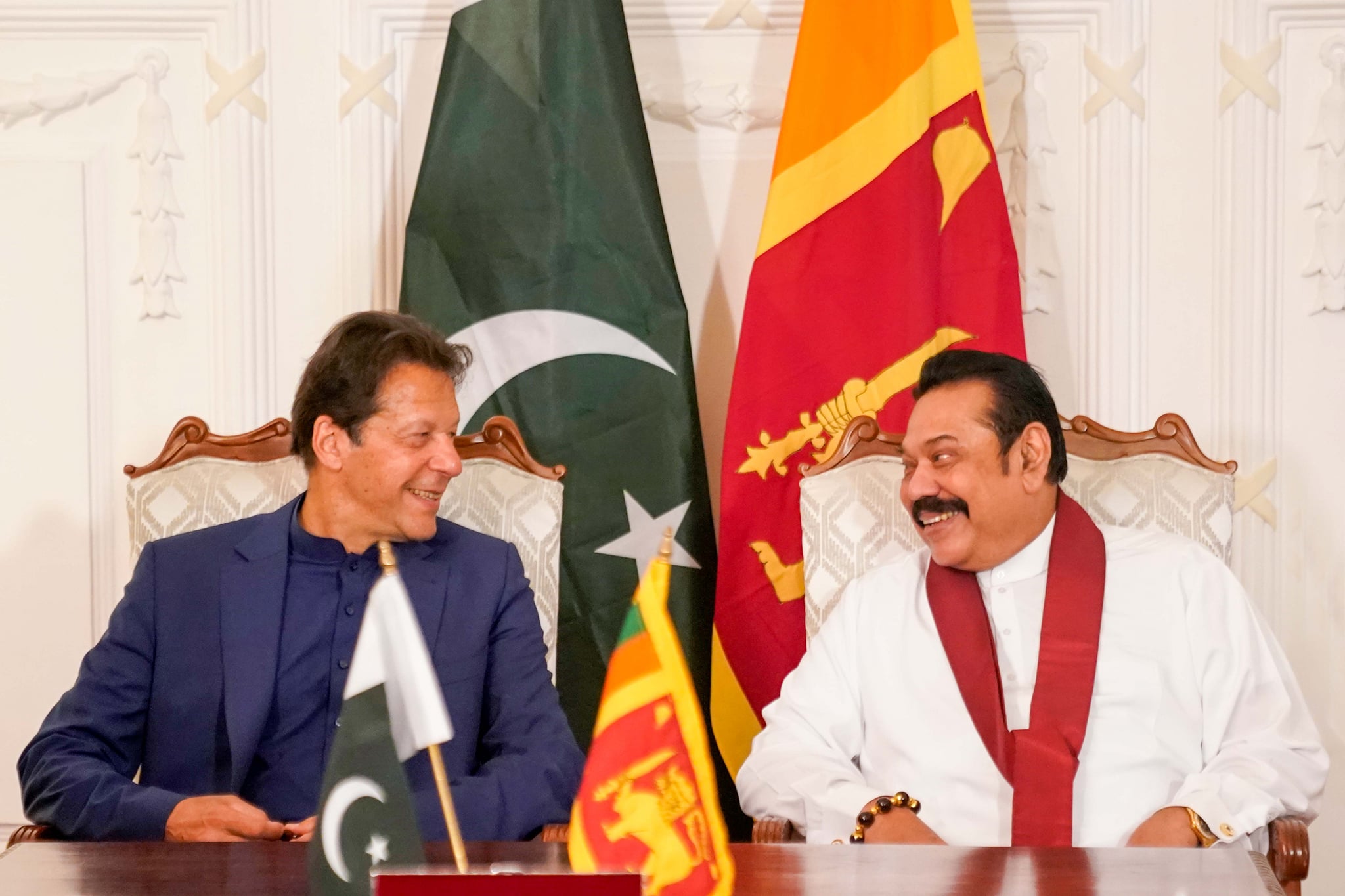
Pakistan has extended a US$ 50 million line of credit for defence to Sri Lanka, following Prime Minister Imran Khan's visit last week where several memorandums were signed aiming to deepen relations between both countries.A joint statement released following the end of the visit where both sides stressed the need for a ‘stronger partnership for supporting and coordinating with each other in matters related to security, terrorism, organized crime and drug and narcotics trafficking as well as intelligence sharing’.
A large delegation travelled with Khan when he met accused war criminal and Sri Lankan prime minister Mahinda Rajapaksa. The two parties held discussions where several Memorandum of understandings (MoU) were signed and commitments to bilateral trade were made.
The two parties agreed to further developed the Pakistan-Sri Lanka Free Trade Agreement with both stressing the importance of achieving US$ 1 billion in bilateral trade and the Pakistani delegation calling on Sri Lanka to use its Gwadar port – part of the multi-billion dollar China-Pakistan-Economic Corridor for trade with China and Central Asia. Furthermore, MoU’s were signed to enhance cooperation in tourism and enhance cooperation on investments between the two countries. Several MoU’s were signed to develop links between several universities in Sri Lanka and Pakistan. The Pakistani government announced their intention of establishing an Asian Civilisation and Culture centre at the University of Peradeniya, Kandy.
Read more at the Livemint.
The move comes despite, all branches of Sri Lanka’s military standing accused of committing atrocity crimes. Last month protestors marched in the Pottuvil to Polikandy march for justice which saw 50,000 people from across the Tamil homeland participate. A key demand of the march was to end military surveillance and harassment of Tamil civil society and to demilitarise the North-East. The North-East remains one of the most militarised regions in the world and the military have been used to facilitate colonisation schemes.



